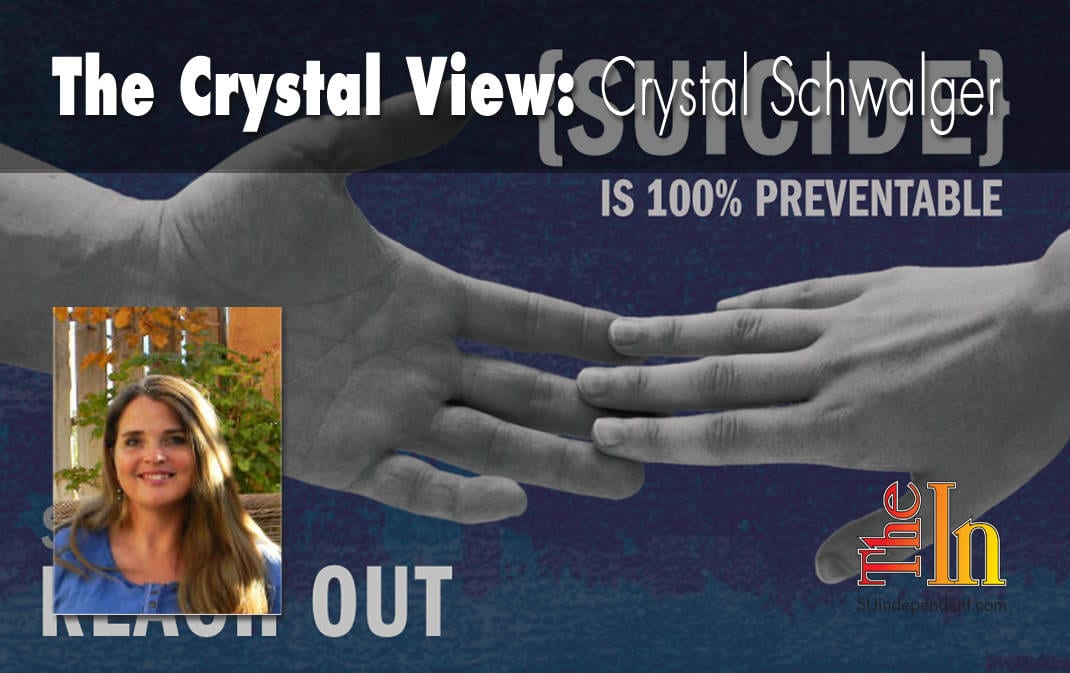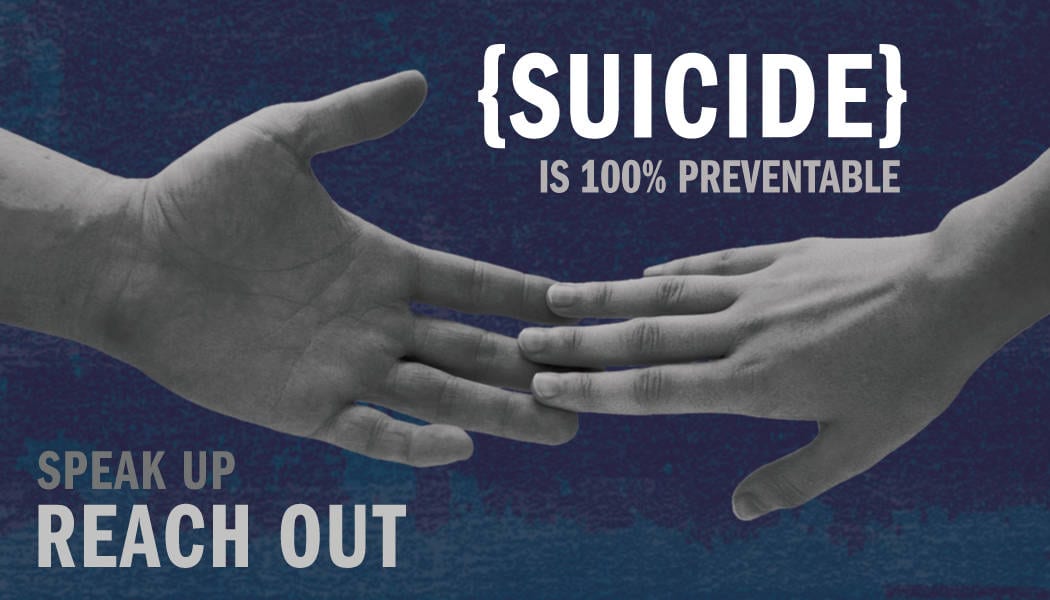
This weekend I received some devastating news that rocked my entire immediate and extended family. My nephew who was 35, married and had two children, killed himself. As hard as that news is to hear even one time, unbelievably this is not the first family member to end their life, making this news even harder to handle. If nothing else makes you reexamine your life and think about those you love, receiving this type of news definitely will. Our family is not the first to experience such tragedy and unfortunately, according to the latest statistics, most likely will not be the last. Understanding and preventing suicide can be difficult, yet statistics show that there is one death by suicide approx every 13 minutes in the United States.
My first feelings were disbelief, horror, sadness, pain, anger, and even guilt. I felt sick to my stomach and sick to my soul that another member of my extended family would do something like this. Anne-Grace Scheinin, daughter of a manic-depressive suicide victim, wrote after the death of her mother, “Suicide doesn’t end pain. It only lays it on the broken shoulders of the survivors.” How true this statement is.
In many ways, it is harder to lose someone this way than if the person had died of a disease, or even from an accident. There is something about a self-inflicted death that repulses us and puts us in denial to believe anyone would willingly take their own life, especially since it is human nature to fight to live. This knowledge often compounds the pain and confusion for the survivors.
While it is hard to understand the pain and suffering that suicidal people deal with, the real victims of suicides are those that are left behind to deal with the consequences and aftermath of this tragedy. In reality, a self-inflicted death is just as shocking to the heart of a loved one as an explosion might be to a building. Those that are closest to the emotional blast of this act suffer not only the physical loss of their loved one but also the heartbreaking emotional loss as well.
Just as it is with any sudden death, there is no way to prepare for the suicide of a loved one. The wounds inflicted are often deep and the scars left behind last for years. This was something unexpected, unwanted, and utterly undeserved.
Kay Redfield Jamison, American clinical psychologist and author of “Night Falls Fast: Understanding Suicide,” explains the survivor’s journey in her book: “Death by suicide is not a gentle deathbed gathering; it rips apart lives and beliefs, and it sets its survivors on a prolonged and devastating journey. The core of this journey has been described as an agonizing questioning tendency to ask repeatedly WHY the suicide occurred, and what its meaning should be for those that are left.”
It is only human to want answers and to have a sense of understanding of why this happened. Unfortunately for most survivors of suicide, there is no clear reason as to why their loved one chose to end his or her life in this manner. The unknown “why” is what often haunts those who were the closest and prevents a sense of closure. Experts say that family members left behind often feel guilty for not recognizing the signs that their loved one was in need or that they could have or should have done more. Quite often though, those who are contemplating suicide have been thinking about it for a long time and have become very good at hiding their feelings and pretending that they were OK.
No one can know for certain what was going through the mind of the person or the final thoughts or feelings before ending his or her life. What we do know from those who have attempted and survived suicide is that they felt an overwhelming desperation and debilitating hopelessness. RBC ministries, in their discovery series on surviving the aftermath of suicide, say “Suicidal people often feel alone and confined to the darkness of their pain. While most don’t necessarily want to die, they simply don’t want to continue to live with the pain that has become unbearable to them.” For some reason, they seem to feel powerless or worthless, or an inability to change their circumstances.
According to the American Foundation for Suicide Prevention (AFSP), depression and other mental health issues are a leading cause of suicide. In fact at save.org (Suicide Awareness Voices of Education), their researchers show that there is a “strong link between suicide and depression, with 90% of the people who die by suicide having an existing mental illness or substance abuse problem at the time of their death.” Jamison goes on to say in her book, “People seem to be able to bear or tolerate depression as long as there is the belief that things will improve. If that belief cracks or disappears, suicide becomes the option of choice.”
The real problem is recognizing the depression in not only a loved one but also in ourselves. People often know or feel that they are experiencing depression but are perhaps afraid of the stigma associated with it or even that they won’t be taken seriously, so they suffer in silence, pretending that everything is OK. Still, others may not want to admit that they have depression, and so they continue to suffer until they are consumed with the overwhelming need to escape.
According to the AFSP, many people do show one or more warning signs either through what they say or what they do. If someone you know is exhibiting warning signs, AFSP recommends to first talk with them immediately and openly. Be yourself and let that person know that you care. Offer hope and reassure them that things can get better and let them know that their life is important to you. Never try to shame them for admitting they have thoughts of suicide, and talk to them in a calm non-judgmental way. Let them vent their anger, pain, frustrations, disappointments, or depressions to you.
Most importantly, if someone confides that they are indeed thinking of ending their life, don’t dismiss it as thinking they are just kidding. No one would joke about something as serious as suicide. According to the National Suicide Prevention Lifeline, many people that attempt suicide have either tried it before, have talked about it to someone, or researched it days or even weeks before they attempt it. If you know someone or see someone who is doing this, realize that this person needs help immediately. Do not leave the person alone. Instead, use your cell phone to call for help from additional friends, and then contact a local counselor or clergyman. You can also contact the National Suicide Prevention Hotline. Their number is 1-800-273-TALK (8255).
If you yourself are experiencing these types of thoughts and feelings, please know that you are not alone in your struggles. There is a light at the end of the tunnel, and things will get better. Don’t be afraid to talk to a friend or loved one or to seek help from a counselor or clergyman. You do not have to suffer in silence or alone. You are loved, and your life is precious to others.
It is not my belief that my loved ones ended their lives so young to hurt their families and friends. Their pain and depression clouded their minds and their judgment to a point that their only wish was to be free of their own pain. While I and others in my family struggle to understand and accept their decision, we hold on to the hope that they are now free of their pain and in a place where they can find the peace that so eluded them in their lives.




